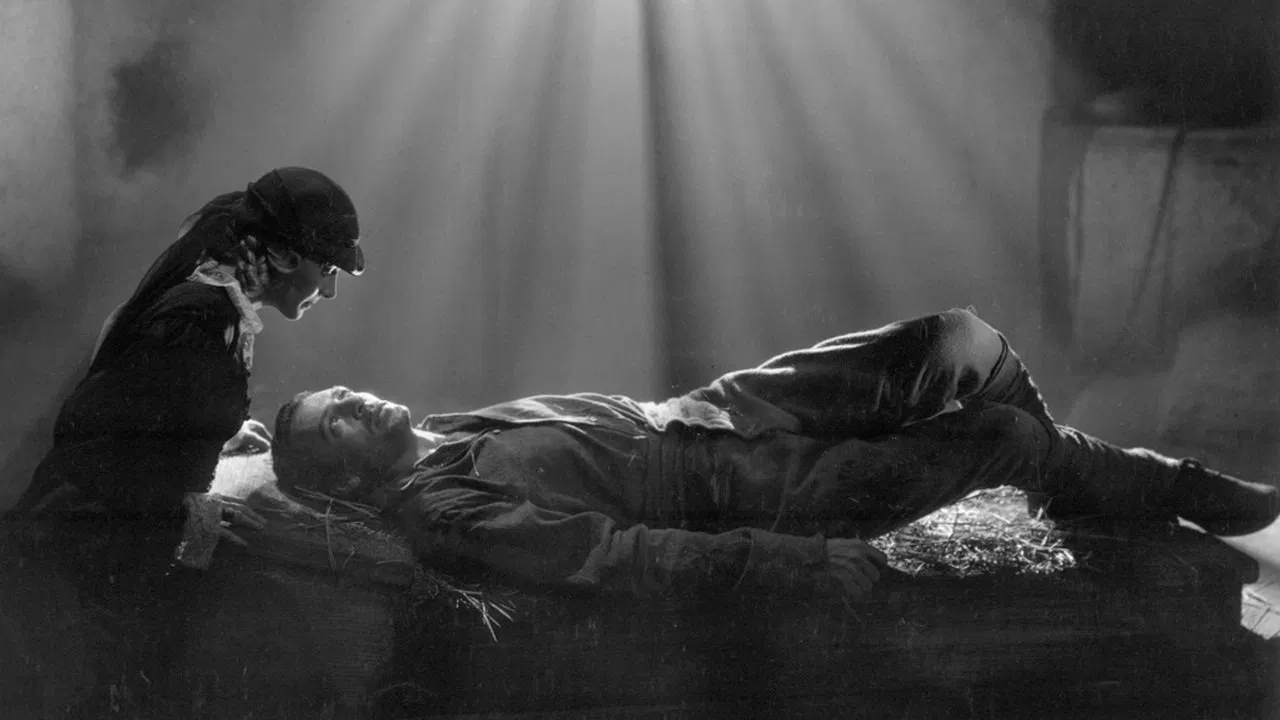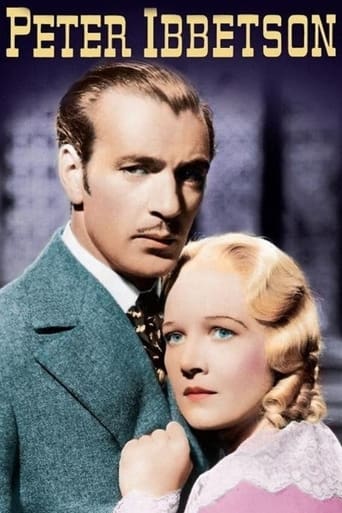

Why so much hype?
... View MoreI really wanted to like this movie. I feel terribly cynical trashing it, and that's why I'm giving it a middling 5. Actually, I'm giving it a 5 because there were some superb performances.
... View MoreExcellent characters with emotional depth. My wife, daughter and granddaughter all enjoyed it...and me, too! Very good movie! You won't be disappointed.
... View MoreThe film never slows down or bores, plunging from one harrowing sequence to the next.
... View MoreOdd semi fantasy film has a good performance from a dashing Gary Cooper to recommend it but the pacing is off. The mood is too earthbound to make it haunting and too celestial for a standard telling. Part of the problem is in the female lead. Ann Harding while a fine actress is miscast as the object of Gary's lifelong desire, a more ethereal performer was required, Merle Oberon would have been perfect. The film drags in parts and feels stilted in others, a defect in the direction more than in the story. The appearance of an almost unrecognizable Ida Lupino as a bit of Cockney baggage is a treat but she's in and out of the film in under fifteen minutes.
... View MoreI'm glad that Peter Ibbetson has been done as an opera by Deems Taylor because that is the medium that this strange story would most likely be revived. It's a sad and romantic tale that they wrote back in Victorian days, but would hardly make it today.Originally a novel by George DuMaurier, Peter Ibbetson became a play on Broadway that was written by John N. Raphaelson and starred John and Lionel Barrymore on Broadway during the 1917 season. The notion that people in love separated by man could be united and live a life in dreams would have found great popularity in that year with so many lovers and married folks separated by war.Two children played by Dickie Moore and Virginia Weidler grow up to be Gary Cooper and Ann Harding. Moore and Weidler are best friends and neighbors in Paris, a pair of English expatriate families. When Moore's mother dies, his uncle Douglass Dumbrille comes to Paris to take him back to Great Britain to raise and the children are separated.Fast forward many years later and Ann Harding is now the Duchess of Towers and her husband John Halliday the Duke hires a promising young architect to do some major renovations on the estate and its Gary Cooper. At some point Harding and Cooper realize who they are and the memories of a bygone carefree childhood cause them to fall in love. When Halliday finds them in a compromising position, he tries to shoot Cooper who flings a chair at him and kills him.If all things were equal Cooper at most should have been charged with manslaughter. But Halliday being a Duke gains him celebrity status and Cooper apparently without a good attorney gets sentenced to life imprisonment. But as they are separated now, Harding and Cooper connect in their dreams each night and live an incredible life which of course means they never grow old.For today's audience Peter Ibbetson is a bit hard to swallow, but the players are so charming and sincere you actually let your cynicism fall away. The story is remarkably similar to the operetta Maytime and no wonder Deems Taylor saw it as suitable grand opera material. In fact Peter Ibbetson's one Academy Award nomination was for its romantic musical score.As good as Cooper and Harding are, I think in retrospect the film belongs to Dickie Moore and Virginia Weidler. As the children Mimsie and Gogo, the film really belongs to them, you remember their performances throughout the movie as you watch their grownup counterparts.Oddly enough even with a French and later English setting, Peter Ibbetson's cast is mostly American. No one in fact is more American than Gary Cooper, but few also are have as romantic persona and a face the movie camera loved as it did few others. For that reason and others Peter Ibbetson holds up well even in today's far more realistic and cynical age.
... View MoreStrange film about the life-long love between a man and a woman is told in three parts. The first part shows them as childhood friends in Paris who are separated after he leaves for London. The second part has them meeting again as adults when he is an architect and she is a duchess. So far so good, with an engaging love story, but then things get too weird in the third part, dragging the film down. Although he is raised in London as the title character, Cooper doesn't even attempt a British accent while Harding's British accent comes and goes. Lupino, in a small role, does a fine British accent. Hathaway creates a haunting atmosphere.
... View MoreSometimes you watch a film which is so good that you wonder why it isn't better known. Peter Ibbetson is such a film. It takes a concept which is highly original but undoubtedly 'out there' and makes you believe in it for just under an hour and a half. It also manages to be a truly moving love story whose basic concept,a man and a woman who are apart for most of their lives meet in their dreams,and it's message,that love does indeed conquer all, should warm the hearts {and shed the tears}of die hard romantics everywhere.It's a bit stilted as many 30s films are,especially at first,but Charles Lang's expressionistic photography immediately creates a fairy tale feeling. The growing love between the young boy and girl is extremely touching. When they meet again as adults,it seems like the film is going to settle down into being a conventional love triangle tale {she's married}. Then the film suddenly changes,and although separated the two lovers carry out their relationship in their dreams. The film is quite subtle is depicting the dream world,although there are wonderful touches,such as the fairy tale castle that she creates with her imagination,only for it to crumble when he fails to believe in it. As for the ending,well,you would have to be very strong not to shed a tear. Like much of the film,it's almost underplayed,and is all the more moving for not being over the top.Gary Cooper shows once again what a great actor he was in his early days {as in A Farewell To Arms},really making us feel his character's pain and joy,although Ann Harding is perhaps a bit too earthy for her role. Director Henry Hathaway was generally a solid craftsman,but here he shows real engagement in his story.A great deal of attention is paid to set design,look at the way for instance the pair are often separated by bars of some sort in the 'real'world. Also notable is the music score by Ernest Toch,suitably romantic,but quite low key and sparse-Max Steiner would have plastered the film with music,but would it have really been as effective?Peter Ibbetson is a wonderful movie, and deserves to be ranked with some of the more better known fantasy romances of Hollywood's Golden Age. I'd actually like to see a remake of this,as it's such an amazing idea. But before that let's have a DVD release,please!
... View More